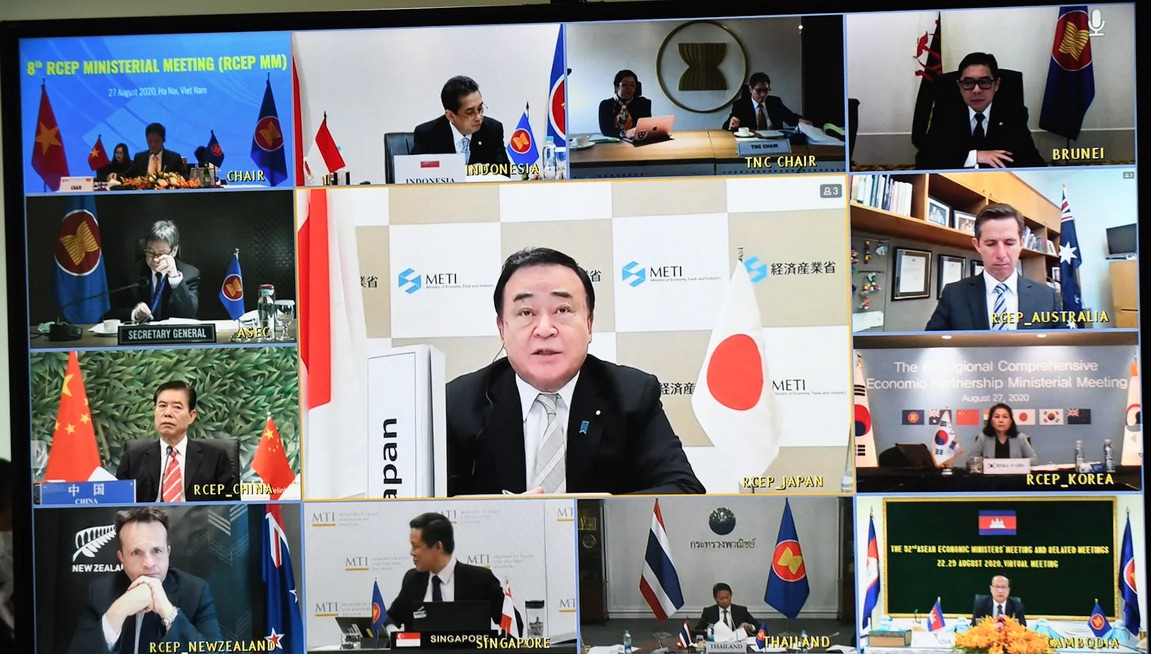RCEP states make ’significant’ progress in trade talks without India
Japan Times | 27 August 2020
RCEP states make ’significant’ progress in trade talks without India
by Kyodo
Ministers from 15 Asia-Pacific countries negotiating a sprawling free trade agreement said Thursday they have made “significant progress” toward the signing of the deal in November, while whether India will stay on as a member of the framework remains uncertain.
The Regional Comprehensive Economic Partnership “remains open for India given that not only had it participated in the RCEP negotiations since they were launched in 2012 but also in recognition of the potential of India to contribute to the region’s prosperity,” said a joint statement.
The ministers released the document after a videoconference held in the absence of India. They welcomed “the significant progress” made toward finalizing the deal for signing at the summit of RCEP leaders in November 2020, the statement said.
With the novel coronavirus pandemic disrupting global supply chains and hitting regional economies, the ministers also “underscored the significant role that the RCEP agreement could play in post-pandemic recovery efforts as well as in contributing to the growth and stability of the regional and global economy,” it said.
The outlook for the RCEP deal remains unclear after India, which is concerned that opening up its market would cause its trade deficit with China to grow, said last November it will no longer participate in the negotiations and skipped subsequent working-level talks.
“There were no discussions today about (the scenario for signing a deal) with or without India,” a Japanese official of the Ministry of Economy, Trade and Industry, who attended the talks, told reporters. “We confirmed that each country will make its own efforts in getting India back to the talks.”
Besides India, 10 members of the Association of Southeast Asian Nations, China, Japan, South Korea, Australia and New Zealand are taking part in the talks, which have a record of failed deadlines for signing a deal.
ASEAN groups Brunei, Cambodia, Indonesia, Laos, Malaysia, Myanmar, the Philippines, Singapore, Thailand and Vietnam.
The RCEP deal aims to establish common rules for e-commerce, trade and intellectual property. It will cover a third of the global economy and half the world’s population, if India is included.






